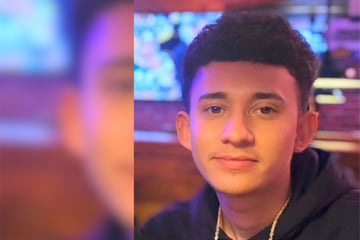Marcellus Williams executed in Missouri despite desperate attempts to stop "miscarriage of justice"
Bonne Terre, Missouri - Missouri on Tuesday executed a man convicted of murder despite calls for a stay from civil rights organizations, prosecutors, and prominent figures who maintained he was innocent.

Marcellus Williams was sentenced to death for the 1998 killing of Felicia Gayle, a former newspaper reporter.
The 55-year-old was pronounced dead at 6:10 PM local time Tuesday, according to the Missouri Department of Corrections.
Williams insisted he is innocent, and the NAACP civil rights group had urged Governor Michael Parson to stay his execution.
But Parson said that Williams's execution in Missouri would go ahead despite protests.
"No jury nor court, including at the trial, appellate, and Supreme Court levels, have ever found merit in Mr. Williams's innocence claim. At the end of the day, his guilty verdict and sentence of capital punishment were upheld," he said in a statement Tuesday.
The US Supreme Court had also rejected a last-ditch request to stay Williams's execution on Tuesday.
British billionaire Richard Branson, who bought a full-page advert in the Kansas City Star newspaper decrying a "devastating miscarriage of justice," mourned Williams's execution on social media.
"It's a shameful day for Missouri, and a shameful day for Governor Mike Parson," Branson wrote on X.
Williams convicted without forensic evidence

Felicia Gayle was found dead at her St. Louis home in Missouri, stabbed 43 times by a kitchen knife during what appeared to be a burglary gone wrong.
Williams was only convicted on the testimony of a former jail cellmate and an ex-girlfriend, even though his DNA was not found on the knife or at a crime scene bursting with forensic evidence, which a judge refused to allow to be tested.
His execution was stayed by the Missouri Supreme Court in 2015, and again by the state's then-governor Eric Greitens in 2017, when tests finally revealed that the male DNA on the knife did not match Williams'.
This year, local prosecutors initiated proceedings to overturn his conviction. However, on Monday, the state Supreme Court ruled in a unanimous decision that it would not stop Williams's execution, despite pleas from Gayle's own family to spare his life.
"While he would readily admit to the wrongs he had done throughout his life, he never wavered in asserting his innocence of the crime for which he was put to death tonight," CNN cited Williams' lawyer Larry Komp as saying.
"Although we are devastated and in disbelief over what the State has done to an innocent man, we are comforted that he left this world in peace."
Cover photo: Handout / Missouri Department of Corrections / AFP

